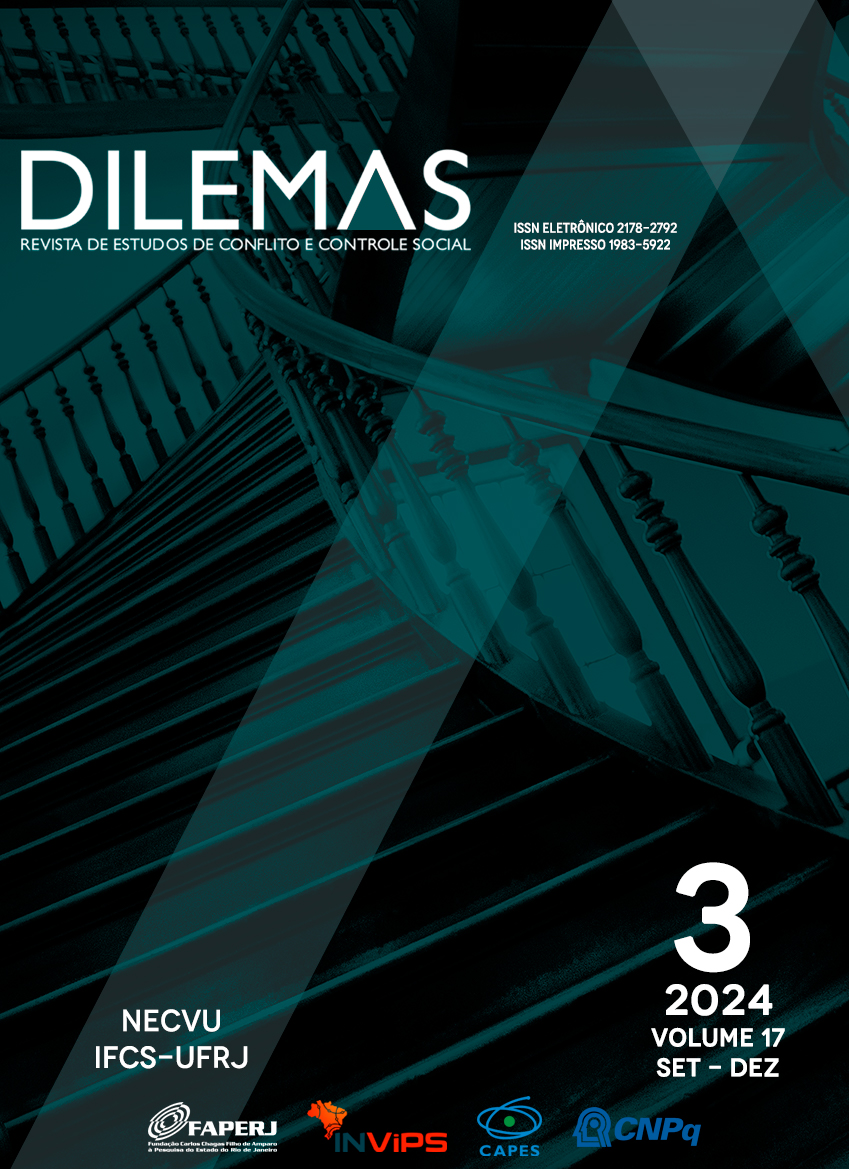Identifying and Criminalizing Male Teenagers for Sexual Abuse
DOI :
https://doi.org/10.4322/dilemas.v17.n3.63012Mots-clés :
Intimacy, narratives, third parties, youngsters, matrisocialityRésumé
Sexuality is everywhere. From the drive for reproduction and through extreme pleasure, it enhances happiness and self-esteem, but transgression is also implicit in eroticism. Diversification of criminal offenses through legal categories and specialized jurisdictions, particularly regarding youngsters, shows a consistent pattern to define formally, either in a therapeutic or in a juridical sense, sexual matters as an object of regulation and public control, rather than private. Teenagers, who are usually the weak party when confronting adult agents of social control, become vulnerable targets for deviant and criminal labels. Narratives from institutionalized teenagers sentenced for sexual abuse provide texts that allow an evaluation, interpretation and characterization of the situation by those who acted and suffered the consequences of sexual transgressions. Data from this study come from ten interviews carried out with teenagers sentenced for sexual abuse, who were 14 to 16 years old at the time of the offense. All the cases, except one, involved known and closely-related victims, in the presence of situational favoring conditions, such as being out of the reach of parents or guardians, and sexual arousal coming from exposure to visual sexual stimulation. Over-intimacy, while associated with conflict, seems not to be the crucial variable for explaining it. Intervention and reporting to the police ranges from their own family or that of the victim, often closely related by spatial proximity, family links or convergent activities. Women, as third parties, mostly respond to the situations and manage the conflict and its outcomes. Cases do not reveal pathological or dangerous offenders but youngsters pushed by hormonal drives within convergent factors, such as explicit sexual content in the media or on the internet and lack of supervision by parents or guardians.
Téléchargements
Publié-e
Numéro
Rubrique
Licence
© Ao submeter um texto, autores mantêm os direitos autorais e concedem à DILEMAS - Revista de Estudos de Conflito e Controle Social o direito de primeira publicação, com o trabalho simultaneamente licenciado sob a Licença Creative Commons tipo atribuição BY (CC-BY), que permite o compartilhamento do trabalho com reconhecimento da autoria e publicação inicial nesta revista. Os autores estão cientes, inclusive, que o trabalho circulará livre e gratuitamente, em versão digital. 2024

Cette œuvre est sous licence Creative Commons Attribution 4.0 International.
Autores mantêm os direitos autorais e concedem à DILEMAS - Revista de Estudos de Conflito e Controle Social o direito de primeira publicação, com o trabalho simultaneamente licenciado sob a Licença Creative Commons tipo atribuição BY (CC-BY), que permite o compartilhamento do trabalho com reconhecimento da autoria e publicação inicial nesta revista.

